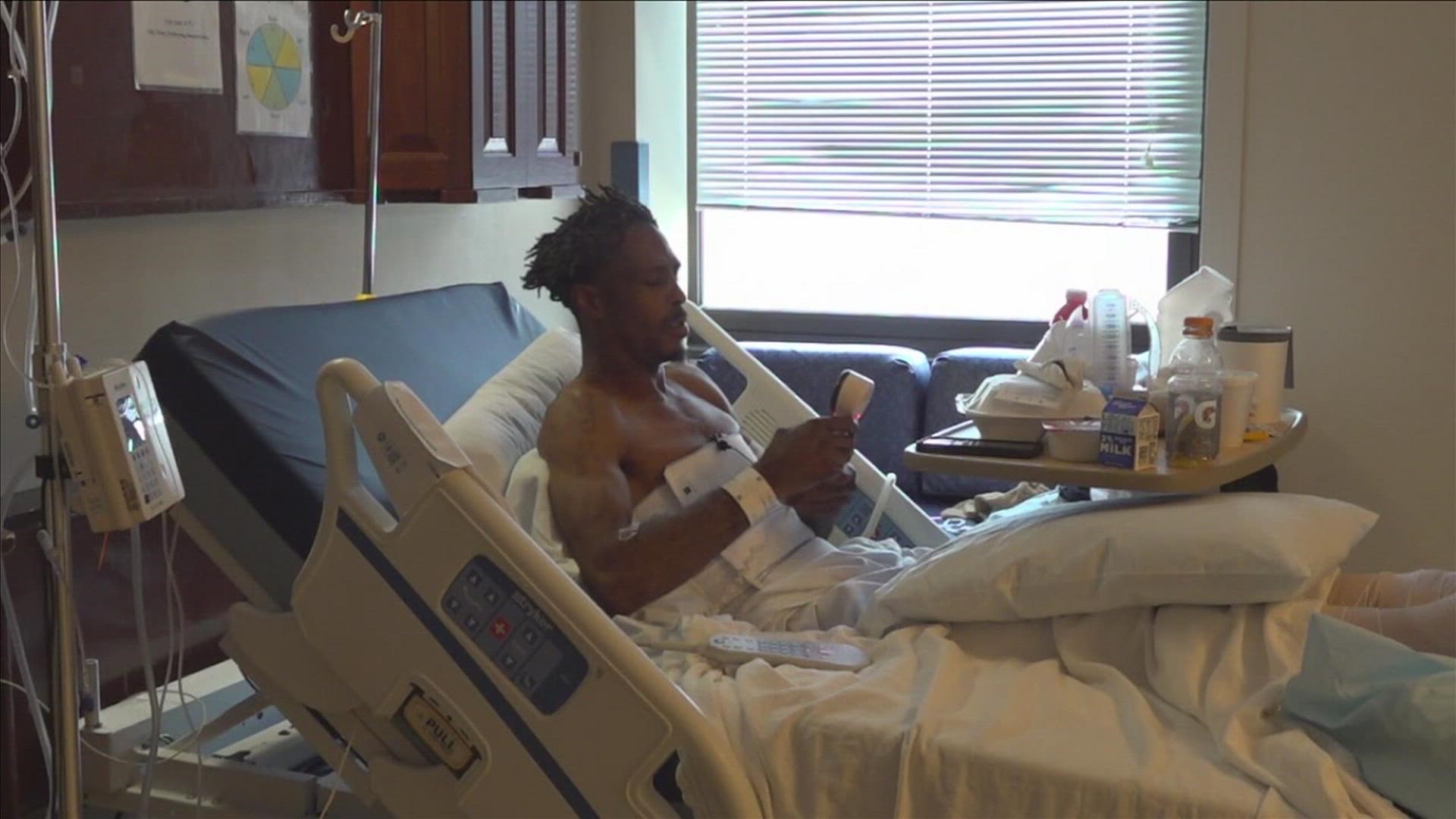MEMPHIS, Tenn. — When Eddie Scott arrived at the Elvis Presley Trauma Center at Regional One after a bad car accident last week, medical personnel cut his clothing off and removed all belongings for him to be treated.
Scott said he was conscious when his clothes were taken off and informed an employee that he’d need his items back because he had money in his pockets for bills – over $400 worth of cash.
After being cared for in the trauma center, Scott was placed in a room for Regional One to tend to his injuries. He said he has a collapsed lung, bruised ribs, a broken right ankle and a damaged left leg.
The engine of the vehicle went into his left leg causing him to need rods put inside and a skin graft on top.
Scott said after he was placed in a room, he asked nurses and doctors for multiple days where his items were and was told repeatedly, they either did not know or would check on it and he never heard back.
Scott then filed a complaint with Regional One’s security team.
After a complaint was filed with the security team, Scott said a member of security went to his room and informed him they smelled marijuana in the hallway and that it “smelled real loud in here,” referencing a stronger smell in Scott’s individual room. Scott said he had not smoked and did not have marijuana with him.
He also said his wife works for the government, so the allegation made her uncomfortable considering she cannot use marijuana.
“Since I filed the report and asked about it, they coming to me like I’m smoking in the hospital,” Scott said. “That’s 400-plus-something dollars, my light bill, my phone bill. I got bills. I got kids so I don’t know what they’re going to do about it, but before I leave this hospital, they need to hand me my money and I don’t have nothing to wear out of here.”
RELATED: Raleigh father confident doctors have 'done the science,' plans to get COVID shot for 4, 2-year-olds
Scott said he has been told by a friend who allegedly used to work at Regional One that this is a frequent issue with patients at this hospital, but Regional One has not confirmed how often this situation happens.
We have reached out to Regional One for comment and were refused an interview about Scott's specific case, but sent the following statement:
“While we cannot share details about a specific individual, I can share with you our processes for securing the personal belongings of our patients who present to the hospital in an emergency or trauma situation. When a patient comes in with personal belongings or valuables, one of two things can happen. Patients who are alert can decide how they want to handle this. If requested or if a patient is unconscious, staff will record the items and place them in an envelope for hospital security to hold until the patient is discharged or is able to retrieve the items. In some cases, the patient will request to keep items in their possession. On the rare occasion that items go missing, our security team works with the patient to try and locate the items in question.”

